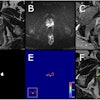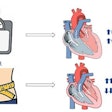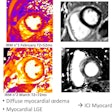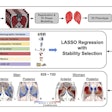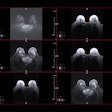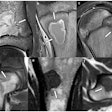Dear MRI Insider,
The latest clinical advances in cardiovascular MRI have been on show at this week's European Society of Cardiology (ESC) virtual congress, and two particularly striking presentations caught our attention.
The first study featured imaging of sickle cell disease at a top London teaching hospital. Heart failure in these patients remains a challenge due to the complexity of cardiac involvement, but MRI is helping out here. The second study came from the Mayo Clinic and was about the modality's ability to identify inflammation as a potential cause of graft dysfunction. Don't miss our special report from ESC 2020.
MRI is the modality of choice for suspected bone or joint complications arising from injected drug use. In another new article, researchers from Mater Misericordiae University Hospital in Dublin revealed the lessons they learned from treating a growing number of patients. They also shared some impressive clinical images.
When assessing gadolinium deposition, have radiologists tended to concentrate too much on the brain and too little on skin and its innervation? Leading investigator Prof. Dr. Alexander Radbruch from Bonn, Germany, thinks so. Radbruch's perspective looks certain to generate discussion and debate.
In other news, a group from Istanbul has found that computer-aided detection (CAD) software based on deep learning trained with MRI data can identify patients with mild cognitive impairment due to Alzheimer's disease. The CAD system yielded an impressive accuracy rate of 87.2%.
Abbreviated MRI appears to be gradually winning support from the breast imaging community. The technique's diagnostic performance was comparable to the full protocol in a systematic review presented at the recent International Society for Magnetic Resonance in Medicine annual meeting.
This letter features only a handful of the many articles posted recently in the MRI Community. Please scroll through the full list below and contact me if you have any ideas for coverage.



